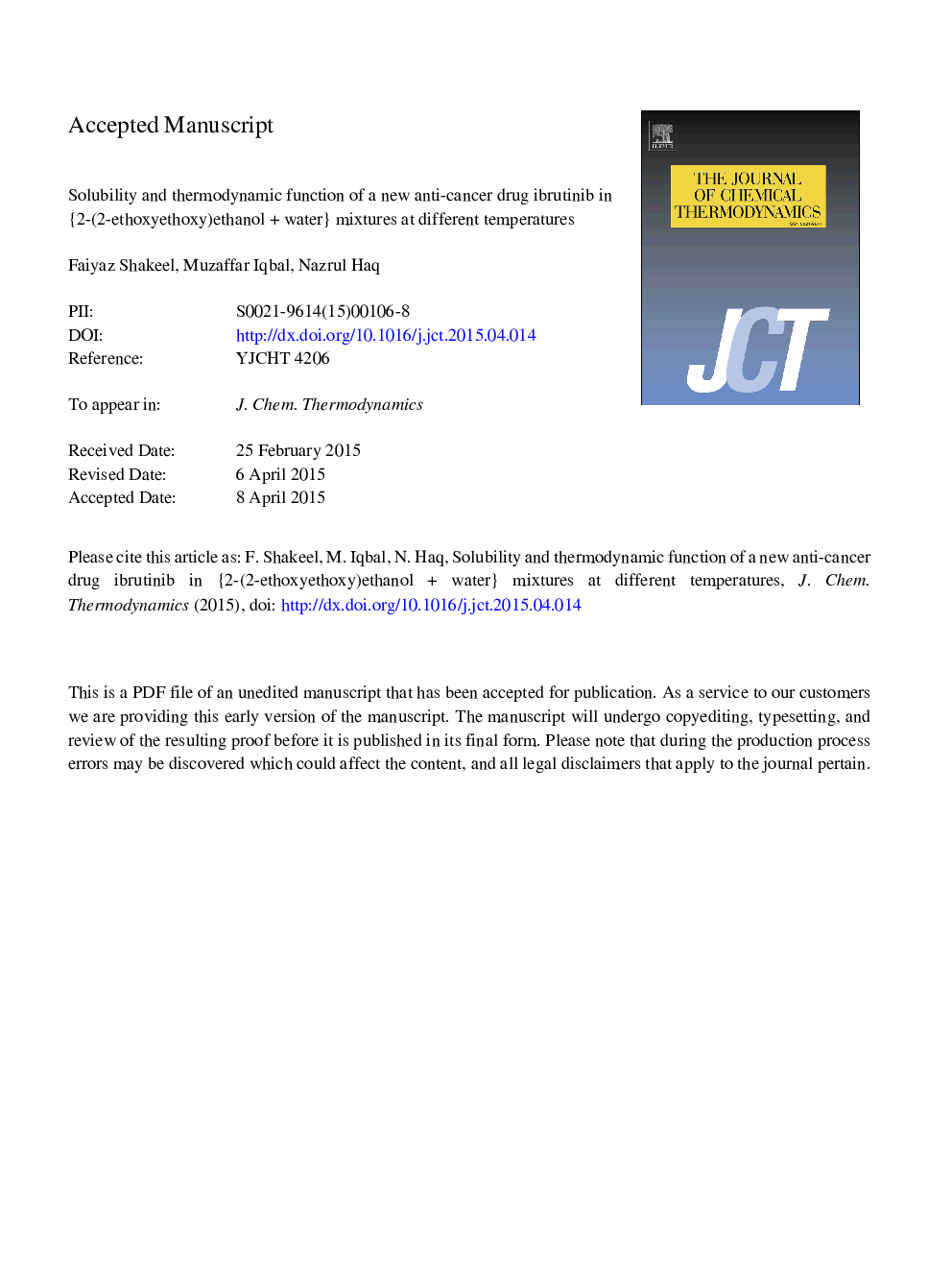| Article ID | Journal | Published Year | Pages | File Type |
|---|---|---|---|---|
| 6660427 | The Journal of Chemical Thermodynamics | 2015 | 21 Pages |
Abstract
Ibrutinib is a recently approved anticancer drug recommended for the treatment of mantle cell lymphoma and chronic lymphocytic leukemia. It has been reported as practically insoluble in water and hence it is available in the market at higher doses. Poor solubility of ibrutinib limits its development to oral solid dosage forms only. In this work, the solubilities of ibrutinib were measured in various 2-(2-ethoxyethoxy)ethanol (Carbitol) + water mixtures at T = (298.15 to 323.15) and p = 0.1 MPa. The solubility of ibrutinib was measured using an isothermal method. The thermodynamics function of ibrutinib was also studied. The measured solubilities of ibrutinib were correlated and fitted with Van't Hoff, the modified Apelblat and Yalkowsky models. The results of curve fitting of all three models showed good correlation of experimental solubilities of ibrutinib with calculated ones. The mole fraction solubility of ibrutinib was observed highest in pure 2-(2-ethoxyethoxy)ethanol (2.67 · 10â2 at T = 298.15 K) and lowest in pure water (1.43 · 10â7 at T = 298.15 K) at T = (298.15 to 323.15) K. Thermodynamics data of ibrutinib showed an endothermic, spontaneous and an entropy-driven dissolution behavior of ibrutinib in all 2-(2-ethoxyethoxy)ethanol + water mixtures. Based on these results, ibrutinib has been considered as practically insoluble in water and freely soluble in 2-(2-ethoxyethoxy)ethanol. Therefore, 2-(2-ethoxyethoxy)ethanol could be used as a physiologically compatible cosolvent for solubilization and stabilization of ibrutinib in an aqueous media. The solubility data of this work could be extremely useful in preformulation studies and formulation development of ibrutinib.
Related Topics
Physical Sciences and Engineering
Chemical Engineering
Chemical Engineering (General)
Authors
Faiyaz Shakeel, Mounir M. Salem-Bekhit, Muzaffar Iqbal, Nazrul Haq,
